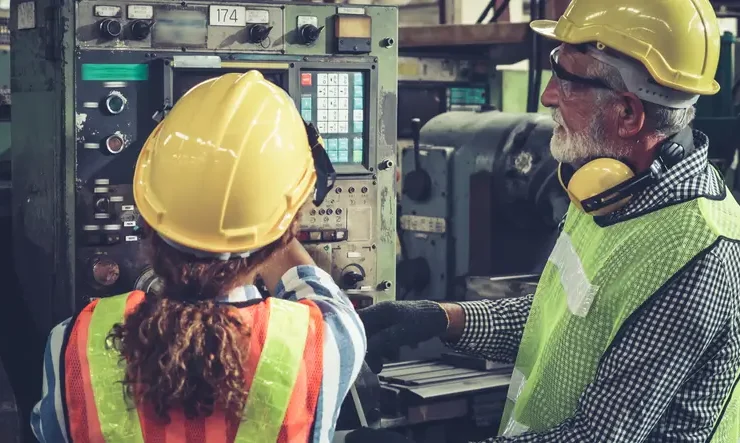Is New York OSHA 30-Hour Construction Course Accepted Nationwide?
The OSHA 30-Hour Construction Course is a fundamental training for workers aiming to improve workplace safety in construction. While OSHA training is universally recognized across the U.S., New York has unique requirements for the OSHA 30-Hour Construction Course. This has led many workers and employers to question whether the New York-specific version is acceptable in other states. Here you’ll find why New York has separate OSHA training, the acceptance of New York OSHA 30 across states, and the benefits of completing this specialized course.
Why Does New York Have Separate OSHA Training?
New York has its own OSHA 30-Hour Construction course because of specific safety standards and workforce needs in the state’s construction industry. As one of the largest and most densely populated cities in the U.S., New York has unique construction challenges, particularly in urban environments with high-rise buildings and complex infrastructure. The New York City Department of Buildings (DOB) mandates additional safety protocols to address these distinct risks, making standard OSHA 30 training insufficient for local regulations.
The New York State Labor Law, specifically Local Law 196, was introduced to enhance safety measures for construction workers on large-scale projects. This law requires most construction and demolition workers on sites with permits from the NYC Department of Buildings to complete additional safety training. Thus, the state developed an enhanced OSHA 30-Hour Construction course, ensuring that workers on New York’s construction sites are well-prepared to meet these stringent local safety standards.
Is The New York OSHA 30-Hour Construction Course Accepted Across The US?
The New York OSHA 30-Hour Construction course is generally accepted in most states, but it’s essential to understand that it doesn’t universally replace standard OSHA 30-Hour Construction training across the U.S. The federal OSHA program establishes baseline requirements for workplace safety, but some states and municipalities may have specific additions or alterations. For example, while New York’s OSHA 30 is accepted as a general compliance measure in other states, some areas with distinct safety standards may still request that workers complete training tailored to their jurisdiction.
Generally, the New York-specific OSHA 30 course satisfies most employers’ requirements for OSHA safety certification. However, if you’re working in a state with additional safety regulations beyond the federal standard—such as California or Nevada, which have unique OSHA standards—you may be required to undertake further training. This acceptance mainly depends on individual employers and state-specific requirements, and it is often wise to check with the employer or relevant state labor department to ensure compliance.
How Is New York OSHA 30-Hour Construction Different from Standard OSHA Course?
The New York OSHA 30-Hour Construction course differs from the standard OSHA 30 course by including additional safety components specific to the needs of the New York City construction industry. While the general OSHA 30 course covers foundational topics like fall protection, hazard communication, electrical safety, and personal protective equipment, New York’s version of this course integrates unique, locally relevant topics that meet New York’s regulatory standards.
For example, New York’s course may emphasize worker responsibilities under Local Law 196, including detailed modules on specific hazards encountered in New York construction sites. It often includes information on avoiding accidents related to scaffolding, working at heights, and using cranes and hoists, which are particularly common on urban construction sites. Moreover, it may include state-specific regulations on safety violations and penalties, which are enforced more rigorously in New York than in many other areas.
As such, the New York OSHA 30-Hour Construction course is specifically tailored to protect workers in the state’s densely populated urban areas. This specialization can make a significant difference in high-risk construction environments where workers are more likely to encounter these kinds of hazards daily.
Benefits of Completing New York Outreach Training for Construction
Completing the New York OSHA 30-Hour Construction course has several benefits, particularly for those who intend to work on construction projects in New York City. First, it helps workers meet local compliance requirements, especially since Local Law 196 mandates that construction and demolition workers have either 10- or 30-hour OSHA training, along with supplemental training for safety on large construction sites. This makes the New York OSHA 30 training crucial for workers looking to maintain active employment on regulated sites within the city.
The course provides a deeper understanding of specific risks that are prevalent in New York City construction. From scaffold safety to confined spaces, the New York-specific OSHA training equips workers with knowledge that is directly relevant to the unique environment in which they operate. This tailored training significantly enhances workers’ ability to recognize, prevent, and respond to common site hazards, leading to fewer accidents and a safer work environment.
Another benefit of completing the New York OSHA 30 course is that it can make workers more attractive to employers. New York construction companies often prefer candidates who have completed this specialized course, as it demonstrates familiarity with local laws and an advanced level of safety training. Additionally, having New York-specific OSHA 30 certification can improve a worker’s career prospects, making it easier to secure employment on major construction projects in New York City and other urban areas that value specialized safety training.
Furthermore, New York OSHA training helps foster a culture of safety and responsibility on-site, encouraging workers to prioritize safety not just as a personal responsibility but also as part of a team-oriented approach to construction. When all team members have a similar foundation in safety protocols tailored to their environment, they are better able to work together to uphold a safe and compliant worksite, which can lead to improved project outcomes and fewer disruptions caused by safety violations.
Conclusion
The New York OSHA 30-Hour Construction course is a valuable asset for construction workers in New York, equipping them with specialized safety training that meets the state’s rigorous standards. While this course is generally accepted across the U.S., workers may need to verify state-specific requirements for compliance. Focusing on New York’s unique construction safety needs, this enhanced course offers workers essential knowledge, supports job security in NYC’s competitive construction market, and promotes a safer work environment on some of the nation’s most challenging sites.





